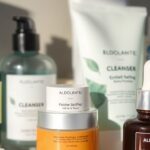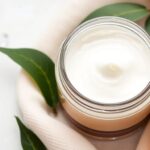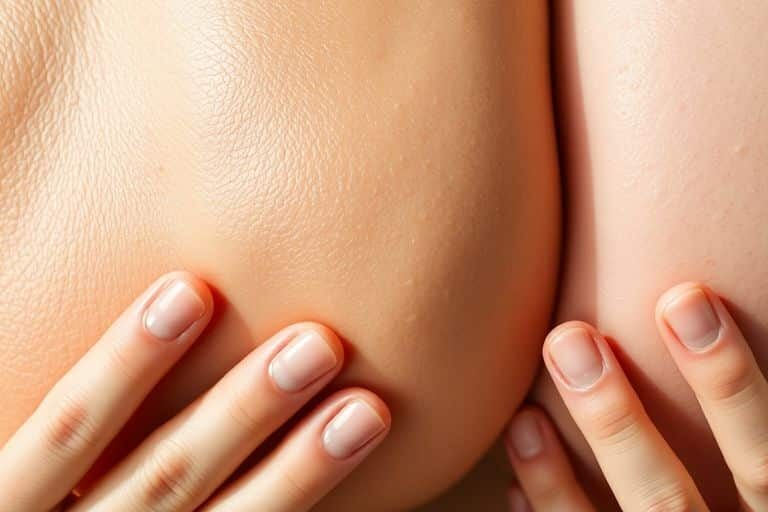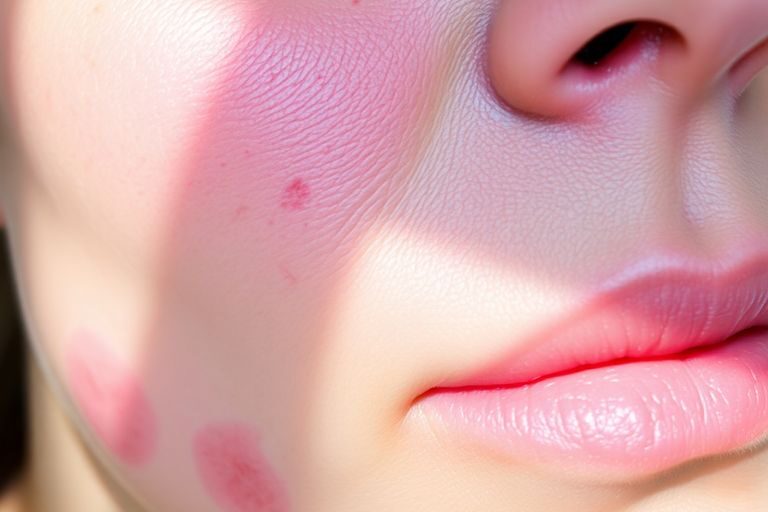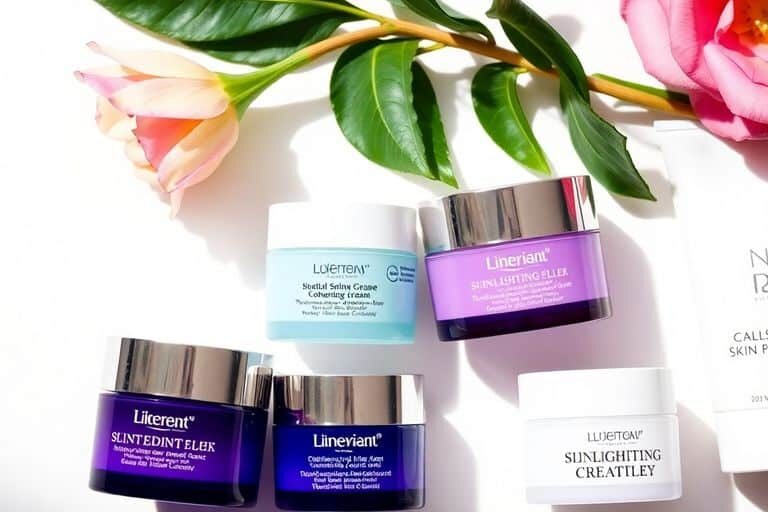Dealing with pesky pimples can be frustrating, especially when you need clear skin fast. While it’s not always possible to completely get rid of a pimple overnight, there are plenty of natural remedies you can try at home to reduce their appearance and soothe your skin. In this article, we’ll explore various effective methods for treating pimples using everyday ingredients, as well as some lifestyle tips to help keep your skin looking its best.
Key Takeaways
- Natural ingredients like tea tree oil and honey can help treat pimples.
- Cold compresses and green tea can reduce swelling and redness.
- Maintaining a gentle skincare routine is key for clear skin.
- Diet plays a role; staying hydrated and avoiding certain foods can help.
- Lifestyle adjustments, such as stress management and regular exercise, can prevent future breakouts.
Natural Ingredients for Pimple Treatment
I’ve found that nature offers some fantastic solutions when it comes to tackling those pesky pimples. Forget harsh chemicals; let’s explore some gentle, yet effective, natural ingredients.
Tea Tree Oil Benefits
Tea tree oil is my go-to for spot treatments. It’s packed with antibacterial and anti-inflammatory properties, which can really help to calm down an angry pimple. I always make sure to dilute it with a carrier oil (like jojoba or grapeseed) to avoid any irritation. A little goes a long way!
Honey as a Natural Antiseptic
Honey isn’t just for your tea; it’s a brilliant natural antiseptic. I often use raw honey as a face mask or spot treatment. Its antibacterial properties can help to fight off the bacteria that cause acne, and it’s also super moisturising. Plus, it’s gentle enough for sensitive skin. I’ve noticed a real difference in skin breakouts since incorporating honey into my routine.
Aloe Vera for Soothing Skin
Aloe vera is my saviour when my skin is feeling irritated and inflamed. It’s incredibly soothing and has anti-inflammatory properties that can help to reduce redness and swelling. I keep an aloe vera plant at home and apply the gel directly to my skin. It’s especially great after exfoliating or if I’ve spent too long in the sun.
I find that using natural ingredients is not only effective but also kinder to my skin. It’s all about finding what works best for you and incorporating it into your daily routine.
Effective Home Remedies to Reduce Swelling
Alright, so you’ve got a pimple that’s decided to throw a party on your face, and it’s brought along a whole lot of swelling. Don’t stress! There are a few things I’ve tried at home that can really help calm things down. It’s all about reducing that inflammation and getting your skin back to normal. Let’s jump into some effective home remedies to reduce pimple swelling.
Cold Compress Techniques
This is my go-to, honestly. A cold compress is like a superhero for swollen pimples. The cold helps to constrict blood vessels, which in turn reduces swelling and redness. It’s super simple too:
- Grab an ice cube (or a bag of frozen peas works great too!).
- Wrap it in a clean cloth – never apply ice directly to your skin.
- Gently press the compress against the pimple for about 5-10 minutes.
- Take a 10-minute break, and then repeat. I usually do this a few times.
I find doing this a couple of times a day really makes a difference. It’s not a miracle cure, but it definitely takes the edge off the swelling and makes the pimple less noticeable.
Green Tea Application
I’m a big fan of green tea, not just for drinking, but also for my skin! Green tea is packed with antioxidants that can help reduce skin inflammation. Here’s how I use it:
- Brew a cup of green tea and let it cool down.
- Soak a cotton pad in the cooled tea.
- Gently dab the cotton pad on the pimple.
- Let it sit for about 10-15 minutes.
- Rinse your face with cool water and pat dry.
Apple Cider Vinegar Solutions
Okay, so apple cider vinegar (ACV) is a bit of a controversial one, but I’ve had success with it when used carefully. It has antibacterial properties and can help to dry out the pimple. But be warned: it’s strong stuff, so dilution is key!
- Mix one part apple cider vinegar with eight parts water. Seriously, don’t skip the dilution – ACV can burn your skin if it’s too concentrated.
- Dip a cotton bud into the diluted solution.
- Apply it directly to the pimple.
- Leave it on for only 5-10 minutes.
- Rinse thoroughly with water.
I only use this as a last resort because it can be quite drying, but it can be effective if you’re careful. Always do a patch test on a small area of your skin first to make sure you don’t have a bad reaction.
Daily Skincare Practises for Clear Skin
Let’s talk about daily skincare – it’s not just a routine, it’s a commitment to keeping those pesky pimples at bay. I’ve found that consistency and the right products make all the difference. It’s about finding what works for your skin, and sticking with it.
Gentle Cleansing Routines
Cleansing is the bedrock of any good skincare routine. I always start and end my day with a gentle cleanser. Harsh soaps can strip your skin of its natural oils, leading to irritation and potentially more breakouts.
- Look for cleansers that are oil-free and non-comedogenic – these won’t clog your pores.
- Use lukewarm water – hot water can be too harsh.
- Pat your skin dry with a soft towel – avoid rubbing, which can irritate the skin.
Moisturising for Balance
I know it sounds counterintuitive, especially if you have oily skin, but moisturising is essential. When your skin is dry, it produces more oil to compensate, which can lead to clogged pores and acne flare-ups. A light, oil-free moisturiser can help maintain the right balance.
- Apply moisturiser after cleansing, while your skin is still slightly damp.
- Choose a non-comedogenic formula to avoid blocking pores.
- Consider a moisturiser with added SPF for daytime protection.
Exfoliation Tips for Acne-Prone Skin
Exfoliating helps to remove dead skin cells that can clog pores and lead to breakouts. However, it’s important to be gentle, especially if you have acne-prone skin. Over-exfoliating can irritate the skin and make things worse. I’ve learned this the hard way!
- Limit exfoliation to 1-2 times per week.
- Use a gentle chemical exfoliant, such as a BHA (beta-hydroxy acid) or AHA (alpha-hydroxy acid).
- Avoid harsh scrubs, which can cause micro-tears in the skin.
I’ve found that incorporating these daily skincare practises has made a huge difference in my skin’s clarity. It’s not an overnight fix, but with consistency and patience, you’ll start to see improvements. Remember, everyone’s skin is different, so it may take some trial and error to find what works best for you.
Dietary Changes to Support Skin Health
What I put into my body definitely shows up on my skin, and I’ve found that tweaking my diet can make a real difference in managing pimples. It’s not just about what I don’t eat, but also about loading up on the good stuff.
Foods to Avoid
Okay, let’s be real – cutting out all the tasty but terrible stuff is hard, but it’s worth it. For me, that means keeping an eye on a few key culprits:
- Sugary drinks and processed foods: These can cause blood sugar spikes, which might lead to inflammation and more breakouts. I try to limit fizzy drinks and sweets.
- Dairy: Some studies suggest a link between dairy consumption and acne. I’ve noticed a difference when I cut back on milk and cheese, but it’s different for everyone.
- High glycemic index foods: White bread, pasta, and sugary cereals can also cause blood sugar spikes. I try to swap these for wholemeal options.
It’s not about deprivation, but moderation. I still treat myself occasionally, but I’m more mindful of how these foods affect my skin.
Hydration and Its Importance
Honestly, I can’t stress this enough: water is my skin’s best friend. Staying hydrated helps flush out toxins and keeps my skin looking plump and healthy. I aim for at least 8 glasses a day, and I notice a difference when I slack off. Dehydration can lead to dry, irritated skin, which can make acne worse. Plus, drinking enough water helps with overall health, which is always a bonus.
Nutrient-Rich Foods for Skin
It’s not just about cutting out the bad stuff; it’s also about loading up on the good. I try to incorporate these into my diet as much as possible:
- Fruits and vegetables: Berries, leafy greens, and colourful veggies are packed with antioxidants, which help protect my skin from damage. Skin ageing can be slowed down by eating a balanced diet.
- Healthy fats: Foods like avocados, nuts, and oily fish contain omega-3 fatty acids, which can reduce inflammation and promote healthy skin. I love adding avocado to my salads.
- Probiotic-rich foods: Yoghurt and fermented foods can improve gut health, which can have a positive impact on my skin. I often have a yoghurt for breakfast.
I’ve found that focusing on these dietary changes, along with a good skincare routine, has made a noticeable difference in my skin’s overall health and appearance.
Lifestyle Adjustments for Acne Prevention

It’s not just about what you put on your skin, but also how you live your life that can impact acne. Let’s look at some lifestyle tweaks that can make a real difference.
Stress Management Techniques
Stress is a massive trigger for breakouts, trust me, I know! When you’re stressed, your body pumps out hormones that can increase oil production, leading to clogged pores and, yep, you guessed it, pimples. Finding ways to chill out is super important.
- Mindfulness and Meditation: Even just 10 minutes a day can help. There are loads of apps to guide you. I use one before bed and it helps me sleep.
- Yoga or Tai Chi: These are great for both physical and mental well-being. Plus, they force you to focus on your breathing, which is a natural stress-buster.
- Hobbies: Make time for things you enjoy! Reading, painting, playing an instrument – anything that takes your mind off things. I find regular exercise really helps.
It’s easy to say ‘reduce stress’, but actually doing it is another thing. Start small, be patient with yourself, and find what works for you. Don’t beat yourself up if you miss a day; just get back on track the next day.
Sleep Hygiene for Skin Recovery
Sleep is when your body repairs itself, and that includes your skin. Skimping on sleep can mess with your hormones and make acne worse. Aim for 7-9 hours of quality sleep each night.
- Consistent Sleep Schedule: Try to go to bed and wake up around the same time every day, even on weekends. This helps regulate your body’s natural sleep-wake cycle.
- Create a Relaxing Bedtime Routine: A warm bath, reading a book, or listening to calming music can signal to your body that it’s time to sleep. I like to use tea tree oil benefits in my bath.
- Optimise Your Sleep Environment: Make sure your bedroom is dark, quiet, and cool. Blackout curtains and a white noise machine can be game-changers.
Regular Exercise Benefits
Exercise is fantastic for overall health, and it can also help with acne. It boosts circulation, reduces stress, and helps regulate hormones. Just remember to shower afterwards to remove sweat and oil.
- Choose Activities You Enjoy: Whether it’s running, swimming, dancing, or team sports, find something you genuinely like. You’re more likely to stick with it if it’s fun.
- Shower Immediately After: Don’t let sweat linger on your skin. Use a gentle cleanser to wash away any dirt and oil.
- Wear Loose-Fitting Clothing: Tight clothing can trap sweat and irritate your skin. Opt for breathable fabrics like cotton.
Understanding Acne Triggers and Prevention

It’s not just about treating pimples as they pop up; it’s also about understanding what causes them in the first place. Knowing your triggers can make a huge difference in preventing future breakouts. Let’s have a look at some common culprits and what you can do about them.
Hormonal Influences
Hormones, eh? They’re always messing with us, aren’t they? Hormonal fluctuations are a major acne trigger, especially for women. Think about it: puberty, menstrual cycles, pregnancy, and even menopause can all cause hormonal shifts that lead to breakouts. Androgens, a type of hormone, can increase oil production, which then clogs pores.
- Keep a diary to track your breakouts in relation to your menstrual cycle. This can help you anticipate when you’re most likely to experience acne flare-ups.
- Talk to your GP or a dermatologist about potential hormonal treatments if your acne is severe and linked to hormonal imbalances. There are options like birth control pills or anti-androgen medications that might help.
- Try to maintain a healthy lifestyle with a balanced diet and regular exercise. This can help regulate your hormones naturally.
It’s worth remembering that everyone’s different. What works for one person might not work for another. It’s all about finding what works best for you and your body.
Environmental Factors
Our environment plays a bigger role than we often realise. Pollution, humidity, and even the weather can impact our skin. For example, high humidity can increase sweat and oil production, leading to clogged pores. Similarly, pollutants in the air can settle on our skin and cause irritation and inflammation.
- Cleanse your face regularly, especially after being outdoors. This helps remove dirt, oil, and pollutants that can clog pores.
- Consider using an air purifier at home to reduce indoor air pollution. This can be particularly helpful if you live in a city with high pollution levels.
- Protect your skin from the sun with a non-comedogenic sunscreen. Sun damage can worsen acne and cause inflammation.
Cosmetic Choices
What we put on our faces can either help or hurt our skin. Using the wrong skin products or makeup can definitely trigger breakouts. Some products contain ingredients that clog pores (comedogenic), while others can irritate the skin, leading to inflammation and acne.
- Always choose non-comedogenic and oil-free makeup and skincare products. These are less likely to clog your pores.
- Be mindful of the ingredients in your products. Avoid products with heavy oils, fragrances, and dyes, as these can irritate sensitive skin.
- Clean your makeup brushes regularly. Dirty brushes can harbour bacteria that can transfer to your skin and cause breakouts.
Here’s a quick guide to ingredients to watch out for:
| Ingredient | Why to Avoid |
|---|---|
| Isopropyl Myristate | Highly comedogenic (likely to clog pores) |
| Mineral Oil | Can trap oil and dirt, leading to breakouts |
| Artificial Dyes | Can cause irritation and allergic reactions |
| Heavy Fragrances | Can irritate sensitive skin and cause redness |
When to Seek Professional Help
Okay, so you’ve tried the tea tree oil, honey masks, and religiously followed a skincare routine, but those pesky pimples just won’t budge? It might be time to consider bringing in the big guns – a dermatologist. I know, I know, it can feel like admitting defeat, but sometimes, you need a professional’s touch to really get your skin back on track.
Signs of Severe Acne
How do you know when your acne has crossed the line from ‘annoying’ to ‘needs-a-doctor’s-attention’? Here are a few telltale signs:
- It’s incredibly painful: We’re not just talking about a little tenderness. If your acne is causing you significant pain, it’s a red flag.
- It’s deep and cystic: Those deep, under-the-skin bumps that never come to a head? Those are often cystic acne, and they can be tough to treat on your own.
- It’s leaving scars: If you’re noticing dark spots or indentations even after the pimples have cleared, it’s time to get help to prevent further scarring.
- It’s not responding to home treatments: You’ve tried everything – cleansers, spot treatments, masks – and nothing seems to be making a difference. Don’t keep spinning your wheels; a dermatologist can offer prescription-strength solutions.
- It’s affecting your mental health: Acne can take a serious toll on your self-esteem and confidence. If it’s causing you anxiety, depression, or social isolation, please reach out for help.
Consulting a Dermatologist
So, you’ve decided to see a dermatologist – great! What can you expect from your appointment?
- A thorough skin examination: The dermatologist will take a close look at your skin to assess the type and severity of your acne.
- A discussion of your medical history: Be prepared to answer questions about your past skincare routines, medications, and any underlying health conditions.
- A personalised treatment plan: Based on your individual needs, the dermatologist will create a plan that may include prescription medications, topical treatments, or in-office procedures.
Don’t be afraid to ask questions! It’s important to understand your treatment options and what to expect along the way. A good dermatologist will take the time to explain everything clearly and address any concerns you may have.
Treatment Options Available
What kind of treatments might a dermatologist recommend? Here are a few possibilities:
- Prescription Topical Medications: These include stronger versions of retinoids, antibiotics, and other acne-fighting ingredients.
- Oral Medications: For more severe acne, oral antibiotics, isotretinoin (Accutane), or hormonal therapies may be necessary.
- Steroid injections: These can quickly reduce inflammation in large, painful pimples.
- Chemical Peels: These can help to exfoliate the skin and unclog pores.
- Laser and Light Therapy: These treatments can target acne-causing bacteria and reduce inflammation.
| Treatment | Description
Final Thoughts on Overnight Pimple Remedies
While it’s tempting to think you can banish a pimple overnight, the reality is a bit different. Most treatments take time to show results, but there are definitely ways to make those pesky spots less noticeable. Using simple home remedies like ice packs or tea tree oil can help reduce swelling and redness. Remember, keeping your skin clean and avoiding harsh treatments is key. If you find that your acne is persistent or severe, it’s wise to consult a dermatologist for tailored advice. Clear skin is a journey, not a sprint, so be patient and take care of your skin!
Frequently Asked Questions
Can I really get rid of a pimple overnight?
It’s hard to completely remove a pimple overnight. However, you can use some home remedies to reduce its size and redness.
What are some natural ways to treat pimples?
Natural treatments include using tea tree oil, honey, and aloe vera, which can help soothe the skin and reduce inflammation.
Does ice help to reduce pimple swelling?
Yes, applying ice can help reduce swelling and redness. Just wrap ice in a cloth and apply it to the pimple for a few minutes.
What should I avoid eating to prevent acne?
Try to limit dairy products and sugary foods, as they can worsen acne for some people.
Is it okay to pop a pimple?
It’s best not to pop pimples, as this can lead to more acne and scarring.
When should I see a doctor for my acne?
If your acne is severe or doesn’t improve with home treatments, it’s a good idea to see a dermatologist for advice.

